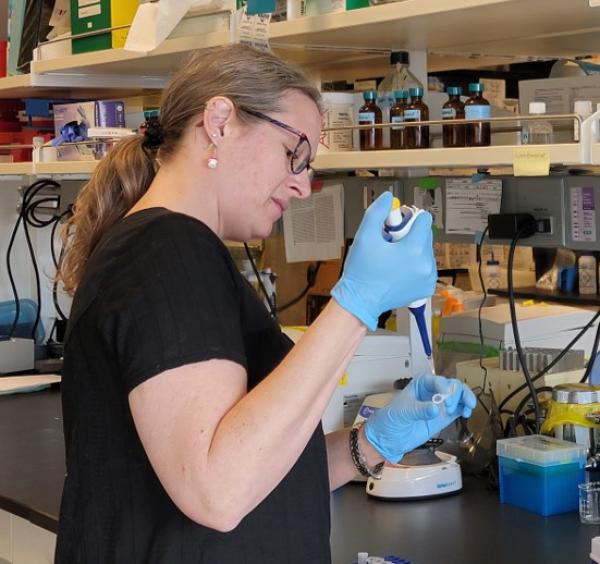 Margaret Garcia
Margaret Garcia
Master's Degree Candidate
Dr. Amanda Charlesworth's Lab
CU Denver Department of Integrative Biology
When: Monday, April 15th, 2024, 10:00am
Where: Science Building, Room 4127
The Importance of Oct60 in GS17 Transcription and Embryogenesis
Early embryos are transcriptionally silent, relying on maternal mRNA until the zygotic genome is activated. Although zygotic genome activation (ZGA) is a process conserved in vertebrates, much remains to be discovered about this process. Multiple mechanisms are thought to be involved in this process, including the limited machinery model, which states that one or more transcription factors must reach a threshold concentration for the zygotic genome to be activated. This study attempts to identify the roles of two maternal factors, Zar1 and Oct60, in Xenopus ZGA. Dominant negative Zar1 mutants were used to investigate how Oct60 protein increases before ZGA. However, these experiments proved challenging for a variety of reasons, and were not completed. Next, we investigated how the increase in Oct60 protein might activate ZGA. The increase in Oct60 protein was inhibited using antisense morpholinos and the de novo transcription of one of the first zygotic genes, GS17, was measured by RT-PCR. Then, to ensure the morpholino effect was specific, exogenous GST-Oct60 was expressed to rescue the effect of the morpholino, which required extensive optimization. We found that GS17 mRNA levels were decreased when the raise in Oct60 protein levels was inhibited, suggesting that Oct60 does contribute to GS17 transcription. These results contribute to our understanding of zygotic genome activation.
